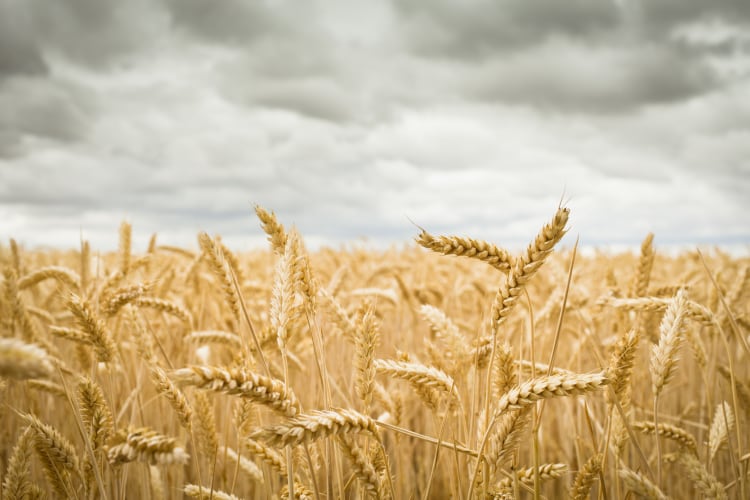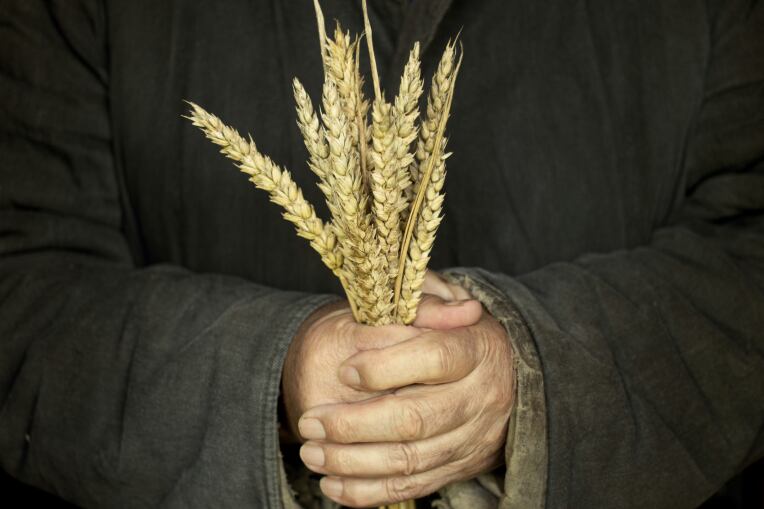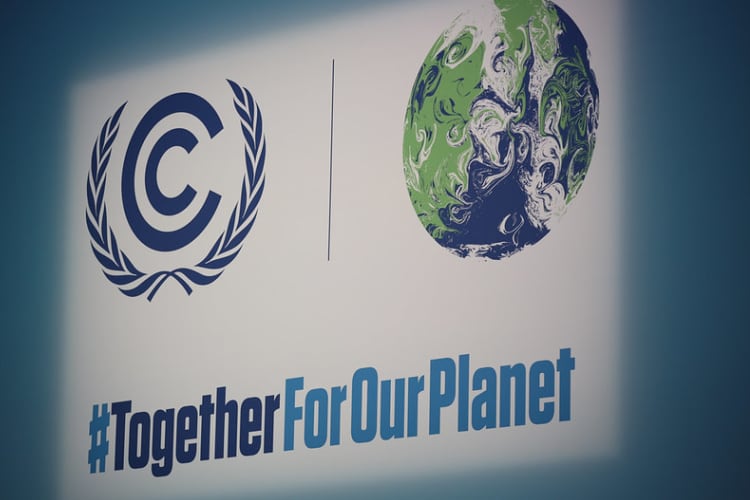The G7 Leaders’ Communiqué kicks off by affirming that the world’s richest nations have an ‘unwavering commitment’ to the Paris Agreement and its ambition to limit climate change to 1.5ºC. It acknowledges that progress isn’t being made at the necessary speed. The G7 countries said that they will re-visit their own national plans to decarbonise their economies.
In the context of the Russian invasion of Ukraine, energy security and the need to address dependency on fossil fuels was high up the agenda.
When it comes to combatting climate change, the focus tends to be placed on developing clean energy solutions. Indeed, energy is by far the largest single contributor to GHG emissions, accounting for around 76% of the total. Rightly, energy – alongside the financial instruments that support current production systems – were a focal point for G7 leaders.
But, for a document that states its aim is to ‘make progress towards an equitable world’, the G7 seemed conspicuously quiet on food security.
Fuel and feed competing with food?
At this year’s Leaders’ Meeting, the connection between food and energy security was more evident than ever, with debate growing over whether food crops should be used to support the production of biofuels.
Supply disruption caused by Russia’s military action and subsequent sanctions have collided with growing energy needs, rising oil costs and the desire to boost farm incomes in developed markets to contribute to a biofuel boom.
This – alongside rising demand for animal protein in developed countries – means fuel and feed is competing with food in tightening grain markets. The situation has only been intensified by drought in grain producing countries like France, the US and India as well as the Russian blockade of Black Sea ports preventing Ukrainian grains reaching the global market.
The rising cost of key commodities means global hunger has become a serious threat to international stability. Already, aide agencies are warning that it is too late to avert widespread famine in East Africa.
The World Bank says 100m more people are expected to go hungry this year. Each 1% increase in global food prices pushes an extra 10m people into extreme poverty.
The ripple effects of severe food shortages are stark: social unrest, political instability, conflict and mass migration. “Conditions now are much worse than during the Arab Spring in 2011 and 2007-2008 food price crisis, when 48 countries were rocked by political unrest, riots and protests. We’ve already seen what’s happening in Indonesia, Pakistan, Peru, and Sri Lanka – that’s just the tip of the iceberg. We have solutions. But we need to act, and act fast,” David Beasley, Executive Director of the FAO’s World Food Programme, has warned.
"We will spare no effort to increase global food and nutrition security and to protect the most vulnerable whom the food crisis threatens to hit the hardest, as laid out in our Statement on Global Food Security," the G7 stated. However, talk is cheap and lofty ambitions didn't translate into significant action, critics insist.
In a bid to get ahead of the situation, the UK and Germany backed proposals to temporarily pause biofuel mandates with the aim of taking pressure off food prices. This suggestion was watered down in the face of opposition from countries like the US and France, where powerful agricultural lobbies want to see the biofuels market remain open to grain producers and high prices at the pump are bruising political reputations.
“The G7 leaders missed a key opportunity to alleviate the pressure on food supplies. We could free up significant quantities of food crops if we simply stopped burning them in our cars. The US bears the lion’s share of the blame. While the UK and Germany pushed to reduce the amount of food used in fuel, President Biden chose to prioritise farmers profits and drivers’ fuel bills in the US over the needs of millions of people who are going hungry across the globe,” Maik Marahrens, senior biofuels campaigner at Transport & Environment, argued.
This isn’t to say the G7 leaders turned a blind eye to global hunger. Indeed, their response to the food crisis has been to commit an additional US$4.5bn in humanitarian aid. Unfortunately, this figure is a drop in the ocean when you look at the funding gap. The UN’s World Food Programme requires an additional US$21.5bn in 2022 alone.
G7 ‘failed to address food system flaws’
The G7 acknowledged the important role that agricultural supply chains play in the climate, biodiversity and security agendas. The Leaders’ Communiqué committed to ‘improving the quality and, where possible, coherence’ of G7 policy measures to promote sustainable food supply chains and a determination to reverse land degradation and forest loss by 2030.
“We will strengthen the agricultural sector’s contribution to food security and to fighting climate change and biodiversity loss. We share the conviction that enhanced soil carbon sequestration activities improve climate stewardship and biodiversity conservation while at the same time increasing agricultural productivity and creating a source of income for farmers, in particular smallholder farmers,” the Communiqué stated.
However, Graham Gordon, Head of Public Policy at UK advocacy group CAFOD, believes the G7 fundamentally failed to address the flaws in the global food system that make it vulnerable to shocks from climate change and conflict.
“The G7 Summit necessarily focused on the immediate needs of those suffering because of the war in Ukraine but failed to address the flaws in our global food system that make it vulnerable to shocks. This means another global food crisis could be just around the corner,” he warned.
Today’s food system is reliant on a few big cash crops that are produced and traded globally by a consolidated number of players. Government subsidies are currently channelled towards these big ag outputs. According to a recent UN report, global agricultural support stands at almost US$540bn a year – or 15% of agricultural output - with spending weighted against producers in the developing world. Over two-thirds of this support is considered price-distorting and ‘largely harmful to the environment’, the report concluded.
Gordon believes that, alongside commodities speculation, G7 leaders should urgently look at the impact their subsidies have on the shape of global agriculture. “The G7 spend billions propping up our failing industrial food system - to prevent future crises they must shift this finance towards more diverse, local food systems that are more resilient to shocks. G7 countries also need to tackle the market failures that send food prices spiralling upwards, such as excessive speculation on food commodities and the lack of transparency by companies and investors on grain stocks,” he argued.




